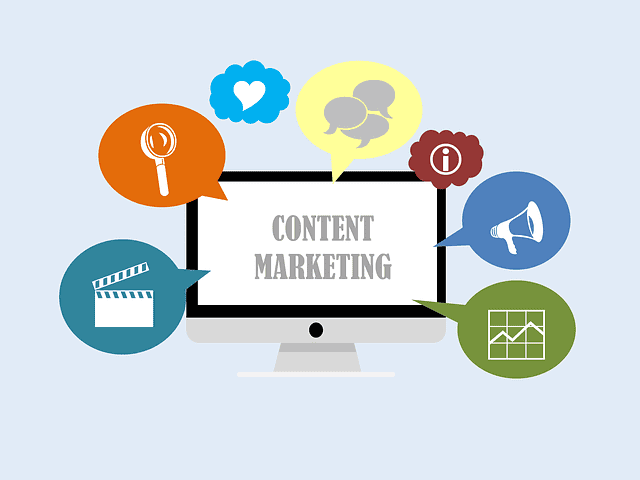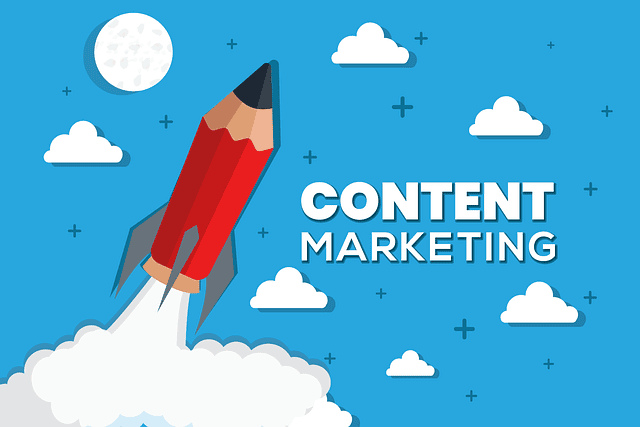-By: Bhavisha Changrani
Content marketing has evolved drastically over the past decade. In 2024, it remains one of the most essential components of digital marketing strategies, helping brands attract, educate, and convert customers by providing valuable, engaging content. However, with the increasing demand for high-quality content across various platforms, marketers are facing the challenge of scaling their content efforts without sacrificing quality.
Fortunately, artificial intelligence (AI) has emerged as a powerful tool to help businesses tackle this challenge. From idea generation and content creation to SEO optimization and content distribution, AI is revolutionizing the way businesses approach content marketing. In this article, we will explore how AI tools can help build a scalable content marketing strategy in 2024, while maintaining the creativity and human touch that makes content truly impactful.

AI-Powered Idea Generation
The first hurdle in content marketing is often generating fresh, relevant, and timely ideas. Coming up with topics that resonate with your audience, align with current trends, and have the potential for high engagement can be a labor-intensive process. In 2024, AI tools play a pivotal role in streamlining this process.
AI-powered platforms like BuzzSumo, AnswerThePublic, and MarketMuse use vast datasets to identify trending topics, keyword gaps, and audience interests by analyzing search patterns, social media conversations, and content performance. These tools can quickly suggest ideas for blog posts, video topics, social media content, and more by understanding what’s currently popular among your target audience.
AI tools also offer predictive analytics, helping marketers identify which topics are likely to perform well based on historical data and user behavior. This enables businesses to focus on content that will generate the highest engagement, saving both time and effort while improving content relevance and quality.
AI-Assisted Content Writing
Once you’ve identified content ideas, the next challenge is content creation. Writing high-quality content that resonates with your audience while meeting SEO and marketing goals can be time-consuming. In 2024, AI tools like OpenAI’s GPT-4, Jasper, and Copy.ai are revolutionizing this process by assisting with content generation.
These AI writing tools leverage natural language processing (NLP) to create human-like content based on prompts, keywords, and guidelines provided by the user. For instance, a marketer can input a brief on a specific topic, and the AI tool will generate a complete blog post or social media copy within minutes. This can save hours of work, especially when creating large volumes of content.
Though AI-generated content is incredibly efficient, it still requires human oversight. AI tools excel at generating structured, data-driven content but can sometimes lack the nuance, emotion, and creativity that make content stand out. However, these tools can be used to generate drafts, freeing up human writers to focus on refining tone, style, and emotional appeal.

SEO Optimization with AI Tools
SEO is a crucial element of content marketing because it determines whether your content will reach your intended audience. With more content being published than ever before, ensuring that your content is optimized for search engines is vital to driving organic traffic. In 2024, AI-powered SEO tools are essential for marketers to improve rankings and visibility.
Platforms like Surfer SEO, Frase, and Clearscope are helping marketers enhance their content’s SEO performance. These tools analyze top-ranking content and provide actionable insights to optimize your content for search engines. For example, they can suggest the best keywords to target, recommend content structures (such as headings and subheadings), and provide feedback on keyword density, readability, and user intent.
AI also aids in more advanced SEO techniques, such as identifying long-tail keywords with low competition and high search volume. AI-powered tools can also suggest on-page optimization tactics like meta descriptions, internal linking, and alt text for images, which are crucial for improving the discoverability of content.
In 2024, the integration of AI with SEO strategies will be essential for ensuring content ranks well on search engines, ultimately driving more traffic to your website and increasing your brand’s visibility.
AI-Driven Content Distribution
Distributing content is equally as crucial as producing it. Even the best content is useless if it doesn’t reach the right audience at the right time. In 2024, AI is transforming how content is distributed and how marketers ensure that it reaches its intended audience.
Social media management tools like Hootsuite, Buffer, and Sprout Social use AI to automate content scheduling, optimize post timing, and target specific audience segments. These tools analyze user behavior and engagement data to suggest the best times to post, which platforms to prioritize, and what types of content work best for different audience segments. By using AI to optimize content distribution, marketers can significantly boost engagement and ensure their content is seen by as many relevant people as possible.
In addition to social media, AI tools like Mailchimp and Omnisend are optimizing email marketing campaigns. These platforms analyze data to personalize content delivery, segment email lists, and automate campaigns. AI-driven email tools can increase open rates and conversions by tailoring messages to specific customer preferences and behaviors.
AI also plays a role in content repurposing. Tools like Lately.ai analyze your content and automatically suggest ways to repurpose it for different platforms, such as transforming a long blog post into a series of social media posts or turning a podcast into a video script. This approach enables marketers to maximize the value of their content and reach a broader audience across multiple channels.

Balancing AI Automation and Human Creativity
While AI tools are incredibly effective at automating repetitive tasks and scaling content production, there’s a growing concern about the potential loss of human creativity. Sometimes, information produced by AI lacks the detail, passion, and individual viewpoint that come from authoring by humans. To keep material interesting, genuine, and approachable, it’s crucial to find a balance between AI automation and human innovation.Therefore, it’s important to strike a balance between AI automation and human creativity to ensure content remains engaging, authentic, and relatable.
Here are several strategies to keep this equilibrium.
Use AI for Efficiency
AI tools can handle the repetitive and time-consuming tasks, such as generating drafts, conducting keyword research, and optimizing SEO. This frees up time for human writers to focus on the creative aspects, such as storytelling, brand voice, and emotional appeal. By using AI to automate mundane tasks, businesses can scale their content production without compromising quality.
Human Interpretation of Data:
AI can provide data-driven insights, such as trending topics, high-performing keywords, and audience preferences. However, human marketers are needed to interpret this data and adapt it to the brand’s unique voice and values. AI-generated content may be formulaic, but human writers can inject personality and emotional depth into the content.
Quality Control
While AI can generate large volumes of content quickly, human editors are essential for ensuring that the content meets quality standards. Editors can refine the language, correct errors, and ensure that the content aligns with the brand’s messaging and goals.
Emotional Connection
AI cannot replicate the emotional intelligence required to create content that deeply resonates with an audience. Content that connects emotionally often stems from understanding the struggles, desires, and values of the audience—something AI tools are not yet capable of achieving on their own. Human creativity is key to infusing empathy and emotional intelligence into content.

Conclusion
In 2024, AI is transforming content marketing by enabling businesses to scale their efforts while maintaining high quality. From generating content ideas and writing drafts to optimizing SEO and automating content distribution, AI tools are helping marketers streamline their processes and deliver valuable content at scale. However, AI should be viewed as a tool that complements human creativity, rather than replacing it.
By using AI for efficiency and automation, marketers can free up more time for creative strategy and emotional storytelling, ensuring that their content resonates with their audience. As AI continues to advance, the future of content marketing will be defined by a collaborative partnership between human ingenuity and technological innovation—enabling brands to meet their content goals while fostering authentic connections with their audience.










